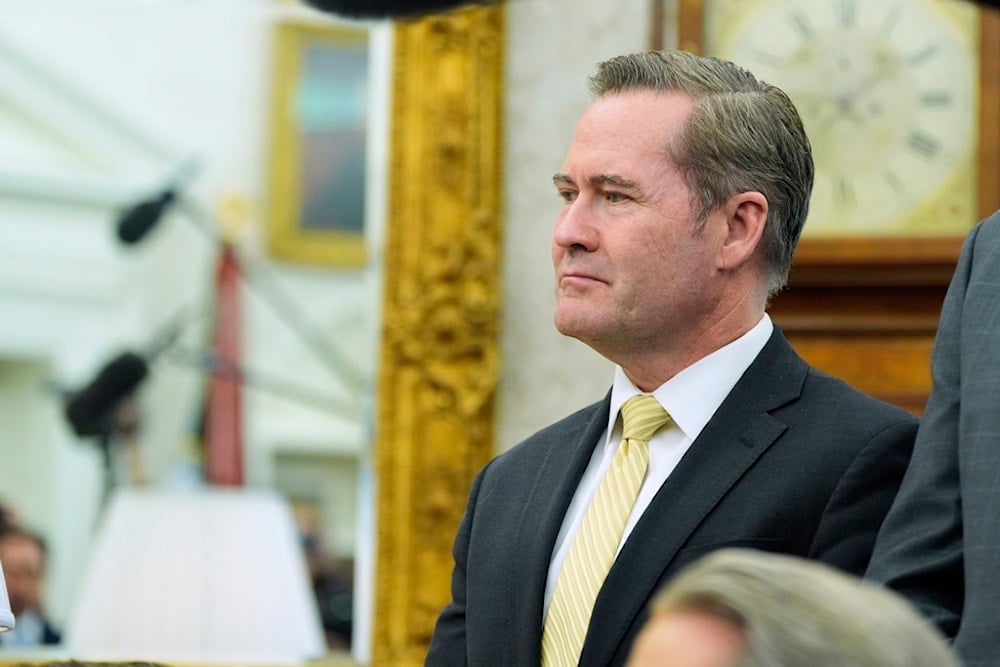Waltz fired over Netanyahu contacts, pushing to strike Iran: WashPo
"You work for the president of your country, not a president of another country," a Trump adviser told the Post, criticizing Waltz's close dealings with foreign leaders.
-

White House national security adviser Mike Waltz listens as President Donald Trump meets with Italy's Prime Minister Giorgia Meloni in the Oval Office of the White House, Thursday, April 17, 2025, in Washington (AP Photo/Alex Brandon)
The Washington Post on Saturday reported that US President Donald Trump has removed National Security Adviser Michael Waltz after months of internal friction over foreign policy direction, particularly regarding Iran.
Waltz, a former Green Beret with interventionist leanings, reportedly clashed with Trump's preference for diplomacy. His dismissal was hastened by a March incident in which he included a journalist in a Signal group chat discussing sensitive military plans, an episode that came to be known as "Signalgate."
According to senior officials, Waltz had been on shaky ground for some time. His views on military engagement, especially his advocacy for striking Iran, increasingly diverged from Trump's.
After a February meeting between Trump and Israeli Prime Minister Benjamin Netanyahu, officials said Trump was upset to learn that Waltz had closely coordinated with the Israeli leader on military options. "Waltz wanted to take US policy in a direction Trump wasn't comfortable with because the US hadn't attempted a diplomatic solution," one person said. "It got back to Trump, and the president wasn't happy with it."
Despite his removal, Waltz will stay in government. Trump has nominated him as ambassador to the United Nations.
Loyalty Politics
The dismissal reflects broader shifts within the White House, as Trump moves away from conventional foreign policy structures like the National Security Council. Secretary of State Marco Rubio has been named as interim national security adviser. Officials say Rubio is more aligned with Trump's priorities and has distanced himself from his earlier, more traditional Republican views. He has also taken a tough stance on the Russia-Ukraine conflict, warning both sides that the US could withdraw from peace negotiations, with the consequences potentially more severe for Kiev.
Internal doubts about the relevance of the National Security Council are growing. Some officials argue that Trump's leadership style, which favors loyalty and improvisation over institutional processes, has made traditional policy coordination less essential.
"You work for the president of your country, not a president of another country," a Trump adviser said, criticizing Waltz's close dealings with foreign leaders.
White House Communications Director Steven Cheung told the Post that "The President sets the agenda and it's up to his Administration to implement those policies," praising Trump's first 100 days. Meanwhile, Chief of Staff Susie Wiles and other senior officials had reportedly lost confidence in Waltz even before the Signal controversy.
Read more: Iran reaffirms to UN chief Guterres right to uranium enrichment
Vice President JD Vance had attempted to support Waltz by inviting him on a March trip to Greenland and introducing him to conservative allies. But the efforts were not enough to change the outcome.
White House spokeswoman Anna Kelly defended Waltz's use of Signal, saying, "Signal is an approved app for government use and is loaded on government phones." Nonetheless, the breach added to existing concerns about Waltz's judgment and fit within Trump's inner circle.
Ultimately, a senior official said Trump made the decision alone. "Certainly, people give opinions," the official said. "But with decisions like this, it's him."

 3 Min Read
3 Min Read










